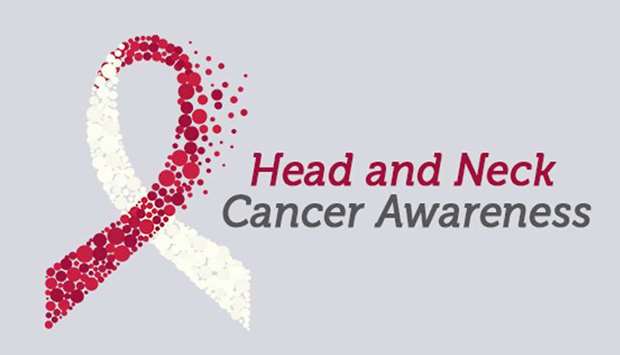The Ministry of Public Health (MoPH), the Hamad Medical Corporation (HMC), the Primary Health Care Corporation (PHCC) and Qatar Cancer Society (QCS), are partnering to strengthen the existing efforts to raise awareness and increase people’s understanding of head and neck cancer throughout this month.
April is observed as the international Head and Neck Cancer Awareness Month.
With a focus on the quality of care provided in Qatar and a decrease in head and neck cancer cases, the joint efforts aim to increase understanding of the signs and symptoms of head and neck cancer, highlight the importance of early detection and treatment, and ultimately achieve health and wellbeing among the population of Qatar, the MoPH has said in a statement.
The most common head and neck cancers are nasal cavity, sinus, lip, mouth, salivary gland and throat or larynx cancers. While these cancers are less common than others, they are dangerous and some of the most complex to treat.
In 2015, head and neck cancers accounted for approximately 4% of total malignant cancers in Qatar, among which more than 60% of the cases diagnosed were late stage. Most cases occur in adults aged between 45 and 49 years, according to the National Qatar Cancer Registry, Ministry of Public Health.
Catherine Gillespie, director of the National Cancer Programme at the MoPH, highlighted that the Head and Neck Cancer Awareness Month aims to encourage people to take steps to reduce their risk of developing this type of cancer.
“Quitting smoking or stopping the use of any tobacco products, including shisha is probably the single most effective way to reduce the risk of developing a cancer in the head or neck. Services to support people who want to give up smoking are available and can be accessed by calling PHCC’s Hayak team on 107 or HMC’s Nesma’ak team on 16060,” she said.
“I take this opportunity to raise awareness of the risk of tobacco use in any forms including smoking and chewing. Symptoms may be as simple as a sore throat that doesn’t go away or a mouth ulcer or sore that doesn’t heal. Like any other cancer, when found early, most cancers in the head and neck can be treated and cured,” Dr Mohamed Ussama al-Homsi, senior consultant in the Oncology Department at HMC, noted.
Dr Shaikha Abu Shaikha, manager for Screening Programmes at PHCC, explained that there is a fast referral process in place between PHCC and HMC for suspected cancer cases. "If the physicians suspect the likelihood of head and neck cancer, the patient will be referred to HMC within 48 hours for further testing. The experienced staff at HMC will conduct the appropriate investigations and manage the case as needed."
Hiba Nasser, head of the Health Education Department at QCS, said they will continue to raise awareness during April regarding the importance of early detection, risk factors, signs and symptoms as well as prevention methods about head and neck cancer. This will be achieved through awareness campaigns and workshops targeting all community members, in addition to launching electronic campaigns through accounts on social media.

